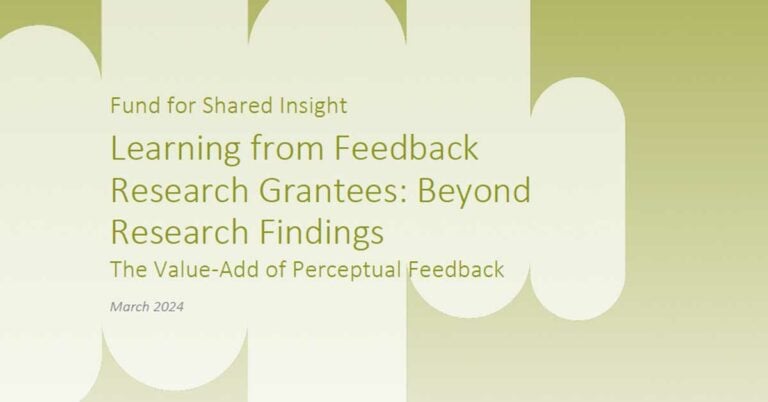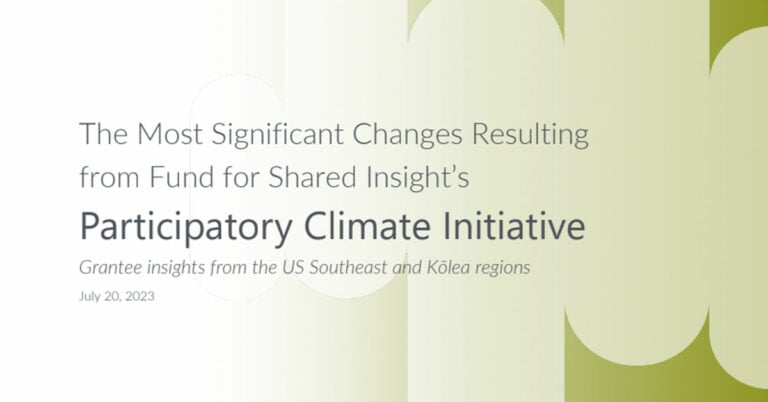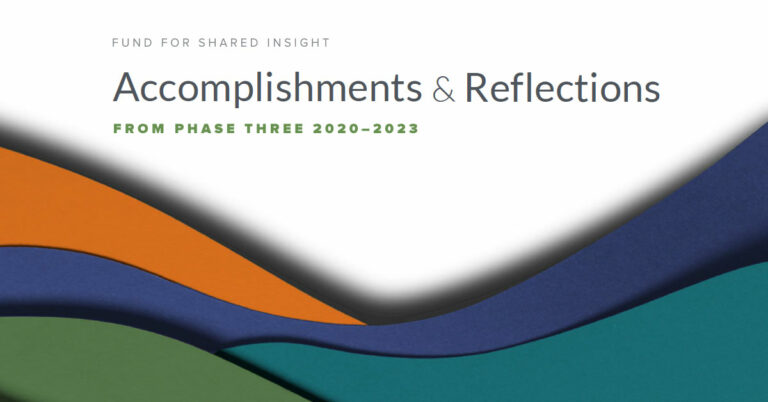ORS engaged in an open-ended inquiry to clarify the conceptual connection between feedback and equity, aiming to identify examples and patterns of feedback practices to help guide nonprofits and funders in what to look for, what to focus on, and how to create practices that support equity work. ORS interviewed multiple staff members at six nonprofits that participated in Listen4Good, exploring the extent to which feedback contributes to their understanding of the inequities their clients face and how they leverage feedback and listening practices to give clients more control over resources and decisions.
Among the key findings
- Feedback is contributing to organizations’ equity work in two main ways: insights from feedback inform changes in programs and organizational policies that advance equity, and the act of listening itself is influencing organizational change.
- For clients, feedback is personal; their feedback includes perspectives, personal experiences, and feelings they choose to share to contribute to organizations’ understanding of their lived experience and barriers they face. While most feel heard and valued, there are still opportunities for improvement.
- Organizations are shifting from having power over clients to building power with clients, and feedback and listening contributed to those practices.
- Feedback and listening contributed in different ways to organizations’ equity work; it acted as a catalyst, mirror, or compass, depending on how feedback and listening were leveraged by each organization.
- Collecting client feedback doesn’t automatically make organizations more equitable; organizations must intentionally design processes and create a culture that infuses equity into the way they gather and use feedback to understand and address the inequities clients face.








